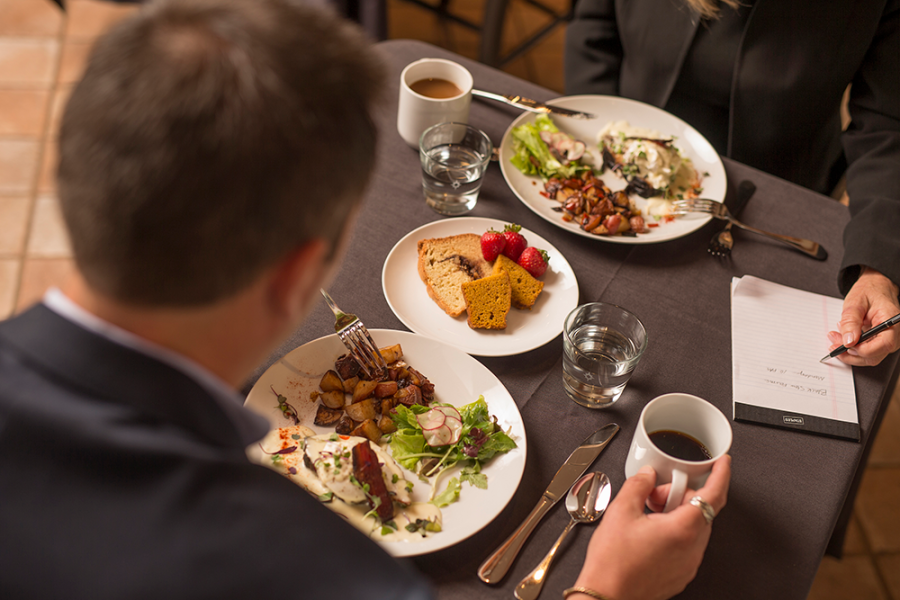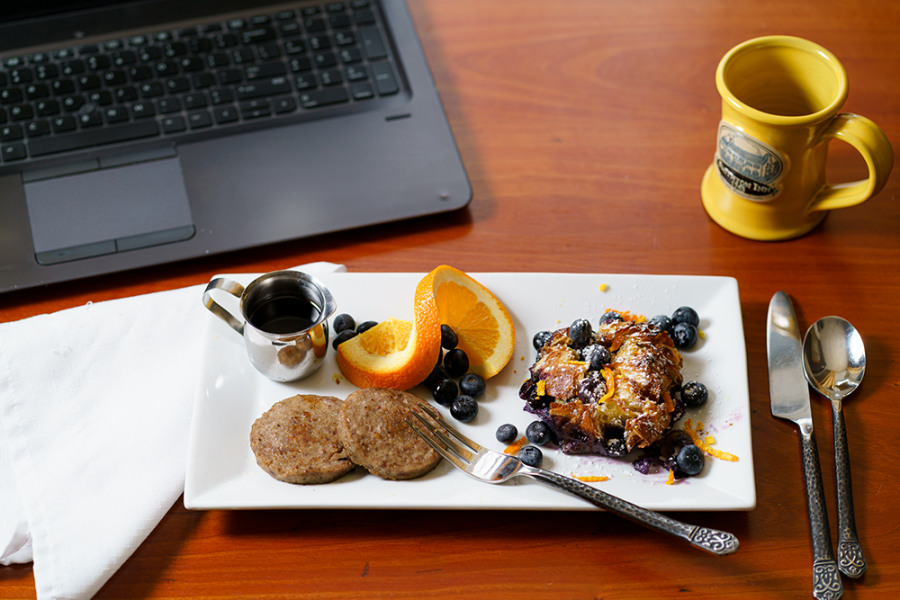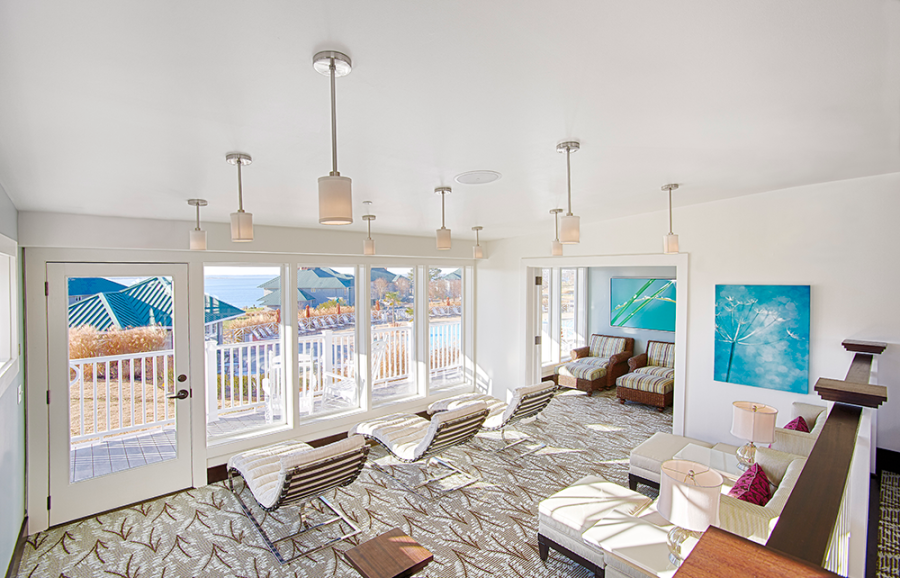Workcation: Remote Work on Vacation

During the COVID-19 pandemic, businesses had to get creative. Hospitality industry professionals saw an opportunity with “workcation” packages targeted at employees working remotely. The idea behind these packages was that rather than strictly always working from home, employees could easily maintain productivity and stay connected in a more exotic environment than their home or office.
Kingsmill Resort in Williamsburg, Virginia, began offering its Work-from-Hotel packages in mid-2020. “People were not traveling. By the mid- to end of 2020, we saw that people wanted to come and stay here for a length of time by themselves. They didn’t necessarily want to work from home; they wanted to get away and work at another location,” says Bill McKay, Kingsmill’s vice president of sales and revenue. “Even before COVID, it was called a ‘staycation’ package. We have one-, two-, or three-bedroom rentals available, all with full kitchens, and our cottages, which we’ll be building more of.”
McKay says guests stay anywhere from three weeks to 30 days, visit the spa and marina, and enjoy activities like kayaking, water skiing, golf, and tennis. “During COVID, it was great because guests could do these activities without having people around,” he adds. Kingsmill is located minutes from Busch Gardens and other local attractions, so there is no shortage of activities for guests both on- and off-site.
Workcation packages at Black Star Farms in Traverse City, Michigan, gave guests the resources they needed to stay productive, the space and security they wanted to feel safe and comfortable, and unique amenities that enhanced their stay. Reservations were typically a few days to two weeks, especially during peak summer season. Inn Manager David Avis says Black Star Farms partnered with local merchants to give guests additional options for safe activities nearby. Teaming up with vendors who were equally committed to maintaining safety and health practices was a win-win for all.

“People were receptive,” Avis says “We did see a percentage of our reservations who would ask about the environment and things like having outlets and Wi-Fi in the rooms. There was a lot of interest, with people taking advantage [of working away from home].”
As travel is rebounding around the country, Avis says Black Star Farms doesn’t actively promote its workcation packages as much as it did earlier in the pandemic.
“We found we were still pretty lucky with reservations in general,” he says. “We’re certainly happy to accommodate. Because we kept up on technology and that kind of thing, we want people to understand we’re still a great place to work away from home and away from the office. Black Star Farms has a library lounge, and people still come in to work on their laptops and phones. They’ll be in there for hours.”
Avis adds that Black Star Farms is lucky to have chef-prepared breakfasts in the morning and hospitality hours in the evening.
“We were also very conscious about being able to bring room service to people’s rooms,” Avis says. “When things opened up a little more, each room was assigned its own table in the on-site restaurant. People could be as isolated as they wanted to be.”
Rebecca Gallagher, owner and innkeeper with husband David at the Historic Smithton Inn in Ephrata, Pennsylvania, says workcation packages have been a positive for the bed-and-breakfast (B&B) whose building dates back to 1763.

“We were getting guests regularly staying for five to seven days. I noticed a different ‘vibe’ with the guests. I think people have learned to relax,” she says. “People would get up, do their Zoom call, then maybe come out and sit by the fire pit, then come in and read their book. We just got a different ‘feel’ with the guests that was more laid back, and we provided the setting for them to do that.”
The Gallaghers leveraged a COVID-19 U.S. Small Business Administration Disaster Loan to hardwire the entire property with internet, equipping all nine guest rooms with robust Wi-Fi capabilities. Gallagher also invested in more tableware and cutlery at the inn and shifted to a room service dining model for guests with longer stays. “We’ve tried to adapt to the needs of our guests,” Gallagher explains. She intends to make workcations a long-term offering.
One of the biggest benefits of the workcation packages for the Historic Smithton Inn team, however, was reaching a whole new customer market.
“It’s opened up traveling to B&Bs to a completely different demographic,” Gallagher says. “Forty-, 50-, and 60-year-olds have thought about staying at a B&B—20- and 30-year-olds … not so much. But they’re the ones who were most comfortable traveling during the early days of the pandemic.”
She also notes that workcations were one example of thinking outside the box: “You just have to be hyper-sensitive and hyper-tuned in. Everything isn’t normal anymore. With not just B&Bs, but all small businesses. The ones I’ve seen come out of the pandemic and have thrived were the ones willing to do something different.”
